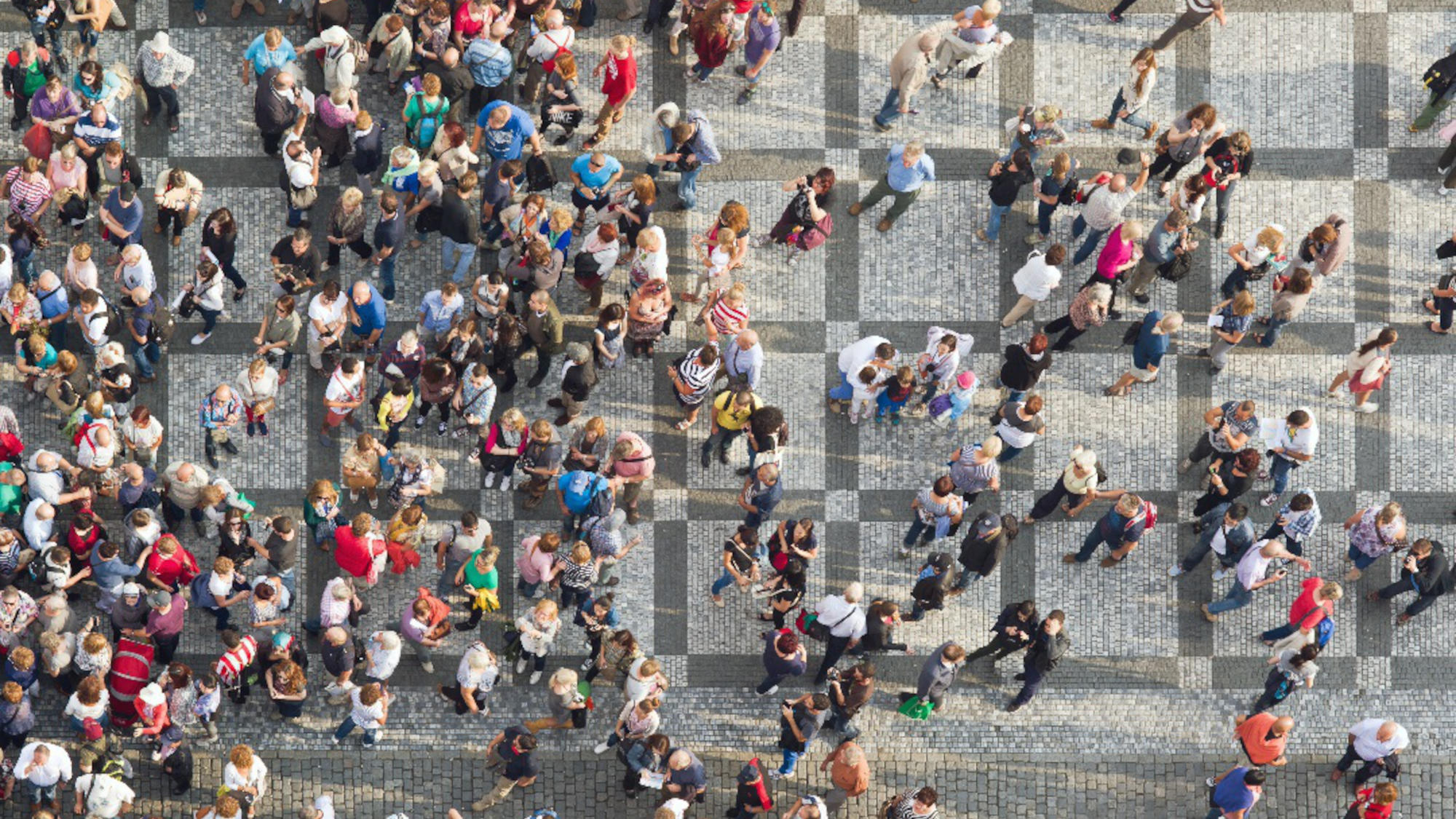
© Adobe Stock / Bits and Splits
Disconnected Lives in Germany: Findings from RISC's First Cohesion Report
Social bubbles and their impact on our worldview
The first cohesion report by the Research Institute for Social Cohesion (RISC) reveals surprising patterns in social networks of Germans. It shows how homogeneous circles of acquaintances shape our worldviews and experiences.
A comprehensive study conducted by RISC with over 12,000 respondents shows that large sections of the German population live in similar social circles. This homogeneity has a direct impact on people’s worldviews and experiences. The strongest tendency towards network segregation can be found among Green and AfD voters, as well as among the highly educated, people of Muslim faith, and those living in rural areas.
Representative Data Set for Germany
These findings are the result of a representative longitudinal study conducted by RISC in cooperation with the German Socio-Economic Panel (SOEP). The survey includes newly developed instruments to measure the composition of social networks as well as questions on various aspects of social cohesion and socio-economic inequalities.
The report examined the widespread assumption that individuals in Germany have few points of contact with other social groups and keep to themselves in everyday “bubbles.” The comprehensive database of the study allowed researchers to analyze a broad spectrum of attitudes, emotions, and practices in relation to respondents’ socio-structural backgrounds.

© Lukas Klose / Universität Bremen
Prof. Dr. Olaf Groh-Samberg, RISC spokesperson and one of the main authors of the study, explains: “Our report shows that the proverbial ‘filter bubbles’ also exist in the ‘analog world.’ People in homogeneous social circles of acquaintances tend to also think, feel, and act differently to people who move in more mixed networks.”
Homogeneous Social Networks: Above All among Green and AfD Supporters
Other key findings: A strong tendency to “keep to oneself” can be found above all among Green and AfD sympathizers. 50 percent of potential AfD voters report that their circles of acquaintances are predominantly made up of AfD sympathizers; among potential Green voters, as many as 62 percent have politically homogeneous networks. This tendency towards network segregation is also very pronounced among people of Muslim faith, people with a low level of education, and those living in rural areas, as well as among East Germans, the rich, and the highly educated.
There are clear differences in attitudes towards democracy depending on education level and income: People with socio-economically privileged networks tend to exhibit high levels of political trust, relatively high levels of satisfaction with democracy and, to a lesser extent, populist attitudes. In contrast, people with less educated or economically disadvantaged acquaintances show less trust in political institutions, a low level of satisfaction with democracy, and a higher level of populist attitudes.
Negative Feelings towards Other Social Groups
“Affective polarization” – the exaggerated emotional identification with one’s own group while simultaneously devaluing the other group – is found in Germany primarily between competing political camps (left vs. right and Green vs. AfD). While people who intend to vote for the Green Party have a very positive attitude towards other people who sympathize with the Greens, they strongly reject people who sympathize with the AfD. Potential AfD voters, on the other hand, assess other AfD supporters as very likeable and feel a pronounced aversion to Green supporters. The tendency towards affective polarization is also greater for most social groups with homogeneous networks. This confirms the assumption that contacts and points of contact between social groups can mitigate hostility between them.
Overall, the Cohesion Report shows that the social acquaintance networks of Germans are by no means completely separate, but are nevertheless homogeneous and segregated to a considerable extent. These results are highly relevant for understanding the dynamics of social cohesion.
The Research Institute Social Cohesion (RISC)
The Research Institute Social Cohesion (RISC) is a decentralized and interdisciplinary research institute. It was established in 2020 and is supported by the Federal Ministry of Education and Research (BMBF). With more than 80 research and transfer projects, it explores terms and concepts, sources and threats, consequences and effects, as well as historical, global, and regional contexts and constellations of social cohesion from a wide range of disciplinary perspectives and methodological approaches. RISC is spread across eleven locations throughout Germany and, thus, reflects the regional diversity of social cohesion in Germany.
The GlobaLab Excellence Cluster – Bremen Research Network on Global Solidarity
Prof. Dr. Olaf Groh-Samberg is Professor of Sociology at the Research Center on Inequality and Social Policy (SOCIUM) at the University of Bremen, managing director of the FGZ, head of the FGZ’s Research Data Center and principal investigator of the German Social Cohesion Panel. His research focuses on the structures, conditions, and consequences of social inequalities in welfare societies. The researcher is a member of the GlobaLab team. The “GlobaLab – Bremen Research Network on Global Solidarity” is one of the University of Bremen’s clusters, which is applying for the German federal and state governments’ Excellence Initiative.